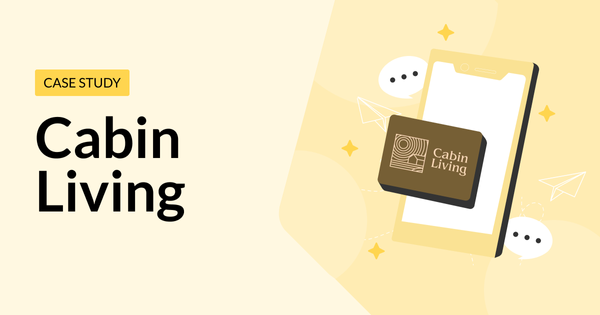How to Boost and Track Your Airbnb Income Properly

Whether your Airbnb business is a side hustle or a full-time venture, tracking your vacation rental income as an Airbnb host is essential to keep it running smoothly. According to the data, on average an Airbnb host can earn $924 a month.
Of course, your Airbnb income will greatly depend on your location, type of property, occupancy rate, and services you provide. It’s worth noting that any extra services that you offer to guests (e.g. bicycle rental) are also usually added to the total amount of your income.
Vacation rental services like Airbnb ordinarily report to the IRS. Therefore, if you rent your property for more than 14 days in a year, you will have to pay tax on your income. The good news is that you can reduce the amount of your tax liability by filing your deductions. Your income tax is a complicated calculation, but you can check your calculations when you need to pay tax at the end of the financial year. So, your taxable income will consist of your earnings minus your deductible expenses.
If you have multiple reservations and properties, tracking your earnings might turn into a real challenge. Continue reading to find out how you can make this process less time-consuming and stressful.
How is Airbnb Different from Traditional Renting
Traditional long-term rentals are a source of stable income for landlords. The difference compared to short-term rentals is significant. After finding a tenant and screening them, signing a contract, and handing over the keys, a landlord can relax and wait for that passive income to pour in every month (if no emergency happens).
The first difference is the obvious one: STRs need an active manager, present in everyday activities. The point is that the whole business model is different. Comparing these models would be like comparing apples to oranges. Airbnb listings thrive on location, proximity to major attractions, and offerings beyond common amenities. In return, you have a greater cash flow than you could with traditional renting.
Take into consideration factors like:
- Amenities: High-quality and unique amenities determine Airbnb success as they directly impact guest satisfaction, reviews, and booking rates.
- Platform fees: Hosts need to account for these fees, Airbnb and other platforms take for their service.
- Cleaning fees: Proper cleaning between guest stays is non-negotiable for Airbnb properties and you need to adjust cleaning rates to cover cleaning expenses, but don't scare guests off.
- STR property insurance: Specialized short-term rental insurance protects Airbnb hosts from liability and property damage beyond standard homeowner policies, so find the right insurance provider.
- Occupancy taxes: Collecting and remitting the correct occupancy taxes is a legal requirement for Airbnb hosts in most jurisdictions. Sometimes Airbnb does it on behalf of hosts but not everywhere.
- Zoning laws: Local zoning regulations can determine whether short-term rentals are permitted in specific areas and cities. Be informed on regulations before starting a business.
How Much Can Airbnb Hosts Make?
We mentioned that Airbnb hosts earn around $14,000 a year on average. Price range fluctuates based on many factors. Some of them are:
Pricing strategies you employ. Let's take nightly rates. They depend on the property type, the amenities, but also on external market factors like seasonality.
Average occupancy rate also determines booking revenue. A higher occupancy rate directly increases booking revenue because more nights are sold. For example, at a $150 nightly rate, a 50% occupancy results in $2,250 in booking revenue, while an 80% occupancy boosts it to $3,600.
Guest reviews reflect the property's performance, influencing future bookings and pricing power. Earning Superhost status further boosts visibility and trust, leading to higher occupancy and revenue.
The level of competition in your area also plays a role—more listings suggest strong demand, but could possibly mean pricing pressure. Finally, listing optimization (from high-quality photos to compelling descriptions) can make the difference between a booked-out calendar and empty nights.
After you have considered all these factors that influence Airbnb income, you need to also account for expenses.
Account for Expenses
Subtracting operating expenses from gross income shows you the real picture. Take into consideration expenses:
- Platform fees: Airbnb's commission for hosting on their site, typically 3% or 14%, is deducted from each reservation, depending on a fee structure.
- Cleaning fees: Charges to cover the cost of hiring cleaners to tidy up and prepare the space for the next guest.
- Mortgage payments: Recurring loan installments to finance the property purchase.
- STR Insurance: Expenses for coverage that protects against potential damages or liabilities in short-term rentals.
- Utilities: Monthly bills for essential services like electricity, water, gas, and internet.
- Maintenance and repairs: Costs associated with routine upkeep and fixing unexpected issues in the property.
- Supplies: Items such as toiletries, towels, and kitchen basics to keep the rental well-equipped for guests.
- Marketing and advertising: Investments made to improve the listing's reach and attract more bookings.
- Property taxes: Required government payments based on the home's assessed value.
- Management fees: Compensation for hiring a professional to oversee bookings, guest interactions, and property upkeep (if applicable).
Do Some Short-Term Rental Market Research
Anybody interested in real estate investing in the short-term rental model must approach market research to determine the property's profitability.
Location can make or break a business. That's why it is good to leverage tools such as AirDNA, Mashvisor, or Airbtics to get a sense of the market context and competition.
These tools analyze similar listings in the area to help you determine average rental rates and profitability potential on a yearly and monthly basis. A profitable property is based on solid nightly rates, high occupancy rates, quality amenities, and local attractions. Without proper research, you can't be sure if an Airbnb is a good investment that will provide a solid cash-on-cash return.
Let's get into the tips.

Keep a Separate Bank Account for Your Airbnb Business
Tracking income and potential deductions can be complicated if you have one bank account for your personal and short-term rental business finances. Instead, open a separate bank account for your Airbnb small business. This way you’ll clearly see your Airbnb payouts and business-related expenses. Not only does it help keep things organized, but it's also a tidbit of tax advice that will help you out later.
Save Your Receipts
Saving your receipts is the first step to lowering your taxable Airbnb income. Reduced tax liability can substantially influence the amount of profit that your Airbnb business has actually made. To save on your taxes, you will need to provide certain proof to validate your deductions to the IRS.
Your receipts and records should show that your expenses were for your business and not for your personal use. In addition, you should also keep all utility, insurance, and mortgage bills if you plan to deduct those costs too. If you fail to do this, your actual Airbnb profit (after taxes) may turn out to be much smaller than you estimated.

Plan Ahead for Tax Time by Hiring an Accountant
You might need professional advice if you manage several Airbnb rentals or have listed them on multiple platforms. Find a CPA or an accountant to help you get a better idea of what Airbnb hosts should keep track of. In addition, you should get familiar with local laws regarding taxes. No doubt, you can do it faster and easier with professional assistance.
It is a good idea to get started with this as early as possible. You will be able to avoid any challenges with tracking your Airbnb income and deductible expenses if you have everything set up in time.
Airbnb Property Management Expenses to Deduct
When it comes to deductions, make sure that you meet IRS requirements for rental properties. First, you must rent out your property for at least 14 days. If you rent out your home for fewer than 14 days in a year, the IRS will consider your rental property as a second home. In this case, you can’t deduct any expenses.
Once you’ve confirmed that you are entitled to rental investment property deductions, here are the expenses that you can deduct:
Cleaning, maintenance, and repairs
If you charge a cleaning fee to keep your property clean and tidy, don’t forget to deduct it before you pay taxes. Deductions also apply if you buy cleaning supplies for your property rental. The same is true about maintenance costs. For example, you can deduct any repairs that you need to make to your property, such as fixing a leaky sink or a roof repair.
However, it gets a bit more tricky if you charge a security deposit. In this situation, if you choose to deduct the cost of the repairs, the retained security deposit is considered taxable income.
Insurance
Although Airbnb provides the Host Guarantee for vacation rental managers, many of them also choose to pay for extra property insurance. Therefore, if you have extra insurance for your property, you can deduct its cost from your taxable Airbnb income. Make sure to save your bills and include them in your deductions at tax time.
Property taxes and utilities
The cost of utilities for your property, including electricity, water, and the internet are also deductible expenses. Once you throw in the local taxes that you have to pay on your property, these deductions can be worth a lot each year.
Professional fees
Hiring an accountant or lawyer to help you manage your Airbnb business certainly adds up. If they help you solely with your home-sharing venture, their fees are also deductible. In addition, a professional accountant can also help you to find those deductions for Airbnb hosts that would otherwise be overlooked.
Marketing and advertising
As the number of properties listed on Airbnb increases each day, vacation rental marketing has become of major importance. Fortunately, the money that you use for promotional activities is completely deductible.
Household supplies
Supplies, such as cleaning supplies, snacks for guests, bedding, and furnishings are all required for running an Airbnb business. So, make sure to deduct any costs that you spend on these supplies for your Airbnb guests.
With a tool like iGMS, you can streamline your hosting experience. The management process can be as hassle-free as looking after a timeshare vacation unit. iGMS offers several other features to automate many of your routine tasks such as:
- Managing multiple accounts and listings on the top OTAs from a single interface.
- Organizing messages into a single feed with a unified inbox.
- Processing payments securely via integration with Stripe.
- Creating essential reports on your business results within minutes.

Use External Revenue Calculators for Research
There are plenty of Airbnb calculator services on the market today that can give you a great snapshot into the viability of your small business. Whether you’re renting your entire home as a short-term rental or as a passive income, you can use an Airbnb calculator to understand how much money you could potentially make from your investment property and short-term rental.
Automate Your Income and Expense Tracking
If keeping up with your receipts and bank statements sounds like a huge hassle, automate your Airbnb finances with software. Instead of manually entering transactions, use accounting software that will link to your bank and Airbnb account.
For example, try using vacation rental software such as iGMS. In addition to other useful features for hosts, it can help you to stay on top of your income. You can create a financial report in no time to check the results of your business. Besides, your payouts are tracked automatically, so you won’t have to enter any data manually.
Other tools such as QuickBooks or Xero can also come in handy to simplify your Airbnb bookkeeping. Consequently, you’ll be able to stay in control of your rental income without bothering with your spreadsheets or payslips.
How to Increase Airbnb Revenue
Thinking about Airbnb income goes in two directions:
- How to increase nightly rates and occupancy
- How to reduce operational costs
The first thing that naturally comes to mind is to maximize guest turnover. Sometimes we forget that keeping costs down also makes a difference. Keeping operating expenses under control through tax deductions and careful cost management will have an influence on your net income.
Focus on Location and Seasonality
After you do due diligence and understand market dynamics, like peak seasons, and occupancy rates in the area, you will understand the context and how potential guests think about the local area.
Let's take an example from Seattle: a short-term rental host noticed his occupancy rate spiked every July, reaching nearly 80%, while bookings in winter often dropped to 50-60%. He realized that tourists flocked to the city for summer festivals like Seafair and perfect weather for exploring Pike Place Market. To capitalize on the peak season, he increased his nightly rates by 30% and offered discounts for longer stays in the slower months. By adjusting his pricing strategy to location dynamics, he maximized earnings year-round.
Cater to Niche Markets
Another way to approach this is by targeting specific market segments, like remote workers or families. Marketing and advertising should align with the type of guests you want to attract. Your property's profile should match your marketing message.
For example, if you're catering to remote workers, highlight high-speed internet and a dedicated workspace in your Airbnb listing and direct booking website. Or, you can allow pets and double down on pet-friendly amenities.
Double Down on Guest Experience
Happy guests are the best advocates for your listing when they leave stellar reviews. We're not just in the accommodation business—we're part of the experience economy. Platforms like Airbnb can easily weed out subpar properties from the Superhost experience based on guest feedback.
Host responsiveness should always be at its highest, and guest communication clear to earn those positive reviews.
Dynamic Pricing Tools
Dynamic pricing tools can be particularly useful for scaling a portfolio. Previously, we shared an example from Seattle of a host who adjusted pricing to mitigate the effects of seasonality. Solutions like Beyond Pricing, Wheelhouse, or PriceLabs use market insights to adjust prices automatically, with the single goal of maximizing revenue at any given moment.
Maximizing Airbnb Revenue with Smart Pricing Strategies
Rather than sticking to a fixed rate year-round, successful hosts adjust their prices based on multiple factors to maximize revenue.
- Seasonal pricing is one of the most effective strategies. During peak demand, such as summer vacations, local festivals, or major sporting events, you can confidently raise rates by 30-50%. Conversely, offering discounts during off-peak seasons helps maintain occupancy when demand naturally dips.
- But pricing isn’t just about seasonality. Weekend rates, especially for Friday and Saturday nights, typically command a 20-25% premium over weeknights.
- Length-of-stay discounts can also encourage longer bookings. Offering a percentage off for four-day, five-day, or week-long stays helps fill your calendar, particularly on slower nights like Mondays and Tuesdays.
- Then there’s the mid-term rental market. Monthly stays attract a different type of guest, but when optimized correctly, they reduce turnover and keep your property occupied for extended periods. Offering a well-structured discount can make these bookings even more appealing.
- Finally, last-minute discounts for unbooked nights within 48-72 hours can help capture revenue that would otherwise be lost. A 15% reduction could mean securing a booking instead of letting the night sit empty.
By combining these strategies and tracking performance, hosts can outperform the market average. In the next section, we discuss the best tools to automate and optimize your pricing.

Conclusion
To determine the health of your vacation rental business, you need to track not only expenses but also your income. By analyzing your rental income and expenses, you will be able to identify if your business is actually profitable. Let’s face it, your efforts should be fairly rewarded. Otherwise, you’ll have to change your business strategy to generate a reasonable profit.
To effectively track your Airbnb income, the best idea is to opt for automation tools. While they will collect information on your income and expenses, you can focus on new ideas to enhance your vacation rental earnings.






